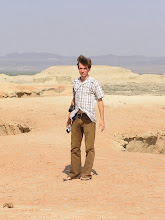Thursday, September 10, 2009
Bonus: The Foggy Dew (Irish revolutionary song)
Chords:
Am - G - C AmG Am - / Am G C AmG Am -
C - G C Am FEm Am - / Am - G - C AmG Am -
Or, more in the R.U.S style of notation:
Am - G - C AmG Am - / / C - G C Am FEm Am - / 1st
As down the glen one Easter morn, to a city fair rode I
There armed lines of marching men in squadrons passed me by
No pipes did hum, no battle drum, did sound its loud tattoo
But the Angelus bell o'er the Liffey swell, rang out in the foggy dew
Right proudly high in Dublin town, they flung out the flag of war
'Twas better to die 'neath an Irish sky than at Suvla or Sud El Bar
And from the plains of Royal Meath strong men came hurrying through
While Britannia's huns with their long range guns sailed in through the foggy dew
O, the night fell black and the rifles' crack made 'Perfidious Abion' reel
'Mid the leaden rail, seven tongues of flame did shine o'er the lines of steel
By each shining blade a prayer was said that to Ireland her sons be true
And when morning broke still the war flag shook out its fold in the foggy dew
'Twas England bade our Wild Geese go that small Nations might be free
But their lonely graves are by Suvla's waves or the fringe of the great North Sea
O, had they died by Pearse's side, or had fought with Cathal Brugha
Their names we'd keep where the Fenians sleep, 'neath the shroud of the foggy dew
But the bravest fell and the requiem bell rang mournfully and clear
For those who died that watertide in the springtime of the year
While the world did gaze with deep amazeat those fearless men, but few
Who bore the fight that Freedom's light might shine through the foggy dew
Ah, back through the glen I rode again and my heart with grief was sore
For I parted then with valiant men whom I never shall see more
But to and fro in my dreams I go and I'd kneel and pray for you
For slavery fled, O glorious dead, when you fell in the foggy dew
From the Gaskell Political Dictionary:
Fenian. The Fenian movement was Irish in conception and purpose, but it began in [America]. The secret organization of the Fenian Brotherhood dates back to 1858, but the first Congress of the fraternity was held in Chicago, Nov. 3, 1863. In a general way all Irishmen in favor of Irish independence are sometimes called Fenians. The actual number at any time cannot be stated, but the fraternity was thought to number about 13,000 in 1861. At that time a constitution was promulgated and a republic for Ireland, much like our own, declared. James Stephens was the head of the movement. John O'Mahoney and O'Donovan Rossa were prominent. In 1865 the movement assumed such formidable proportions in Ireland that the leaders were arrested. Although Fenianism attracted a great dent [sic] of attention in America, and actually made a raid upon Canada with the base of operation on this side the line, the movement never had much bearing upon American politics, one way or the other.
Subscribe to:
Post Comments (Atom)


Delightful rendition.. new song to me.
ReplyDelete